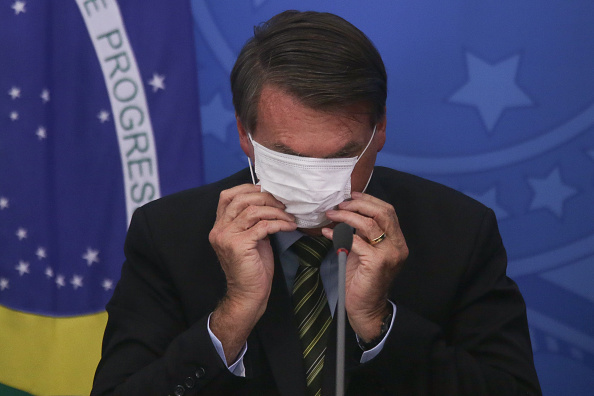Now, in the social media age, we are seeing a fresh inundation of fake news that has spread almost as fast as the new coronavirus. While billions of us remain stuck up our homes under strict lockdowns, on WhatsApp, Facebook, YouTube and elsewhere, a range of bogus stories and conspiracy theories concerning COVID-19 have gained considerable global momentum. One poll by YouGov and the Economist in March 2020 found 13 percent of Americans believed the Covid-19 crisis was a hoax, for example, while a whopping 49 percent believed the epidemic might be man-made. This is, as the World Health Organization declared in February, an infodemic “an over-abundance of information—some accurate and some not—that makes it hard for people to find trustworthy sources and reliable guidance when they need it.”
At its worst, misinformation can be fatal. In Iran, over 600 people have died and over 3,000 were hospitalised after drinking high-concentration alcohol in the mistaken belief that it can cure coronavirus. “The numbers are very high and are beyond our expectations,” Iranian judicial spokesman Gholam Hossein Esmaili told a state-run news service, according to the Mirror. A video broadcast on Iranian networks and shared online showed a five-year-old boy, who had apparently gone blind after his parents gave him the liquid, hooked up to breathing apparatus. In a desperate search for a cure, families have been turning to fake remedies that have spread across social media, including alcohol, which is banned in the Islamic Republic.
Even some world leaders have been guilty of spreading inaccurate information and promoting unproven remedies that may do much more harm than good. While the jury is still out on its efficacy, the antimalarial chloroquine is potentially very dangerous, having recently killed a man in Arizona who drank it after hearing President Donald Trump call it “a tremendous breakthrough.” The toxic ingredient they consumed was not the medication form of chloroquine. Instead, it was an ingredient listed on a parasite treatment for fish.
Facebook and Twitter are taking the rare step of policing world leaders and other political figures. Both social networks rarely interfere with messages from world leaders but the coronavirus has created a new sense of urgency.
Facebook and Twitter deleted a video from Brazilian President Jair Bolsonaro who asserted that the drug hydroxychloroquine was effective in treating the virus and was “working in all cases.” Facebook said it had removed the video from both that site and Instagram, which it also owns. The posts violated its community standards for causing harm, it told BBC News. He has repeatedly downplayed the virus and encouraged Brazilians to ignore medical advice on social distancing.

Twitter took down tweets from Trump attorney Rudy Giuliani, who called the treatment “100 percent effective” in treating the virus after touting a New York doctor’s dubious claims about a cure. It also deleted a tweet by Venezuelan President Nicolás Maduro who shared a virus-stopping homemade “brew”.
According to a report by the Reuters Institute for the Study of Journalism and the Oxford Internet Institute, high-level politicians, celebrities, and prominent public figures generated 69% of the social media engagement around coronavirus misinformation, even though they accounted for only 20% of the misleading posts in a sample. The authors of the report chalk this up to the individuals’ large followings.
TV media outlets — which hold themselves to much higher editorial standards than social media networks — are now trying to find their own balance. CNN and MSNBC started cutting away from Trump’s sometimes factually incorrect speeches during the coronavirus task force briefings when they go off-topic. This week CNN even stopped its live coverage of the daily White House briefing on Monday when Trump began playing a compilation of news clips portraying his handling of the pandemic in a positive light.
UN Secretary-General on Tuesday saluted “journalists and others fact-checking the mountain of misleading stories and social media posts.” But some journalists and broadcasters have also come under fire for their coverage of the pandemic.
“Advocacy group Free Press submitted a scorched-earth complaint to the Federal Communications Commission, urging it to investigate stations airing Trump’s false statements under the “broadcast hoaxes” ban. (The FCC denied the petition, declaring that “we will not censor the news.”) The request echoed the common calls to make platforms ban misinformation — but for a medium that’s not usually seen as a target for regulation,” reported The Verge.
Meanwhile, in an open letter to Fox News heads Rupert Murdoch and Lachlan Murdoch, a group of 74 professors of journalism and journalists have called the network’s coverage of the coronavirus pandemic a “danger to public health”. The letter says that Fox News, which is regularly named as one of the most trusted networks in America, is endangering its own viewers, the average age of whom is 65, making them one of the two most at-risk groups to experience complications if they contract the virus.
“Viewers of Fox News, including the president of the United States, have been regularly subjected to misinformation relayed by the network—false statements downplaying the prevalence of Covid-19 and its harms; misleading recommendations of activities that people should undertake to protect themselves and others, including casual recommendations of untested drugs; false assessments of the value of measures urged upon the public by their elected political leadership and public health authorities,” the letter says.
Tucker Carlson was also mentioned for his touting of a “flimsy” French study about the effectiveness of two drugs in treating the coronavirus. The next day the president referred to “very, very encouraging early results” from the drugs and called a third drug a “game-changer.”







